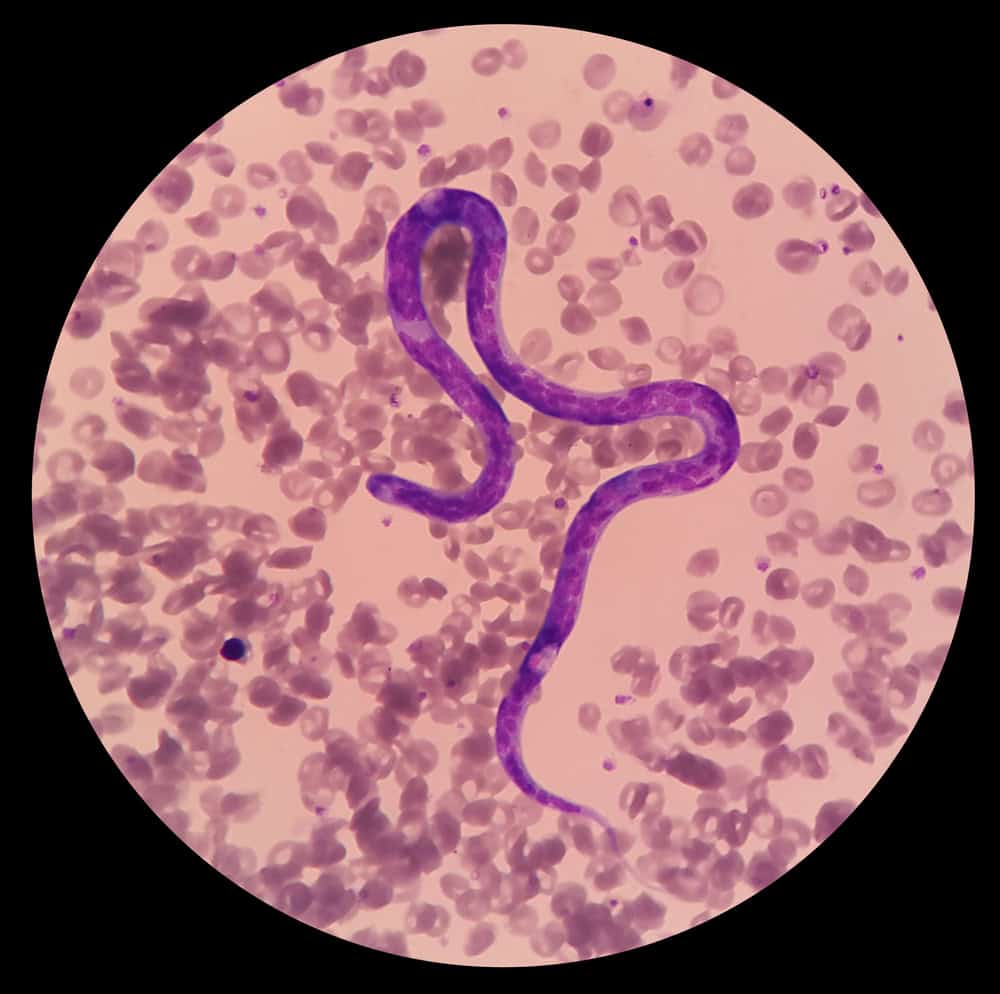According to the American Veterinary Medical Association (AVMA), cases of heartworm disease continue to increase, even in regions that were previously considered low-risk. Caused by Dirofilaria immitis, a parasitic worm transmitted through mosquito bites, heartworm disease primarily targets infected pets’ hearts, lungs, and associated blood vessels, and can be fatal. That means prevention is paramount in safeguarding your furry friends against this debilitating and potentially life-threatening illness.
Our Advanced Veterinary Care of Pasco team delves into the nuances of heartworm disease, its effects on pets, and practical strategies for prevention.
What is heartworm disease?
Heartworm disease is transmitted through mosquito bites. When an infected mosquito bites a pet or wild animal, it transmits heartworm larvae into the bloodstream. These larvae mature into adult worms that primarily reside in the heart and pulmonary arteries of the host.
Heartworm disease signs vary depending on the severity of the infection, but may include:
- Coughing
- Fatigue
- Decreased appetite
- Difficulty breathing
- Vomiting
- Weight loss
- Bulging chest
- Collapse
- Heart failure (in severe cases)
How you can protect your pet from heartworm disease
Preventing heartworm disease is far more cost-effective and successful than treating a pet affected by the illness. Effective prevention measures pet owners can take include:
- Keeping your pet on a heartworm prevention regimen — Administering monthly heartworm preventive medication is the cornerstone of heartworm disease prevention. These medications are available in various forms, such as chewable tablets, topical treatments, and injectables. It’s essential to consult with our Advanced Veterinary Care of Pasco veterinarian to determine the most suitable regimen for your pet based on their species, age, and health status. Additionally, chewable tablets are flavored, making them more appealing to pill-resistant pets.
- Maintaining veterinary exam appointments — Annual wellness exams for pets are crucial for early detection of heartworm infection and other diseases. Our veterinary team can conduct heartworm tests as part of routine checkups and prescribe appropriate preventive measures. We will also offer suggestions for flea and tick prevention.
- Using mosquito control — Minimize your pet’s exposure to mosquitoes by making your backyard less attractive to the pests. Keep doors and windows screened, use mosquito repellents, and eliminate standing water sources (e.g., water fountains, bird baths, and unused pools) where mosquitoes breed. Be judicious in using mosquito repellent, as citronella and other repellent chemicals can harm your pet.
 Adhering to a year-round prevention plan — In warmer climates like Florida, where mosquitoes thrive year-round, continuous administration of heartworm preventive medication is essential. Even during cooler temperatures, mosquitoes can thrive if they find warm spots, such as your home. Following a year-round preventive regimen ensures uninterrupted protection for your pet. Plus, if you skip your pet’s monthly preventive, you’ll need to start the process over with heartworm testing before giving them any preventive medications. That means maintaining their prevention throughout the year is safer and more cost-effective.
Adhering to a year-round prevention plan — In warmer climates like Florida, where mosquitoes thrive year-round, continuous administration of heartworm preventive medication is essential. Even during cooler temperatures, mosquitoes can thrive if they find warm spots, such as your home. Following a year-round preventive regimen ensures uninterrupted protection for your pet. Plus, if you skip your pet’s monthly preventive, you’ll need to start the process over with heartworm testing before giving them any preventive medications. That means maintaining their prevention throughout the year is safer and more cost-effective.- Educating yourself about parasite-borne illnesses — Stay informed about heartworm disease and prevention by consulting reliable veterinary resources, such as the American Heartworm Society, and discussing concerns with our team. Understanding the risk factors and preventive measures will help you make informed decisions for your four-legged friend.
Heartworm disease poses a significant threat to the health and well-being of pets. Fortunately, with proactive prevention strategies and regular veterinary care, you can protect your furry companion from this potentially life-threatening disease.
Contact our Advanced Veterinary Care of Pasco team to get your pet started on a heartworm prevention regimen.








Leave A Comment